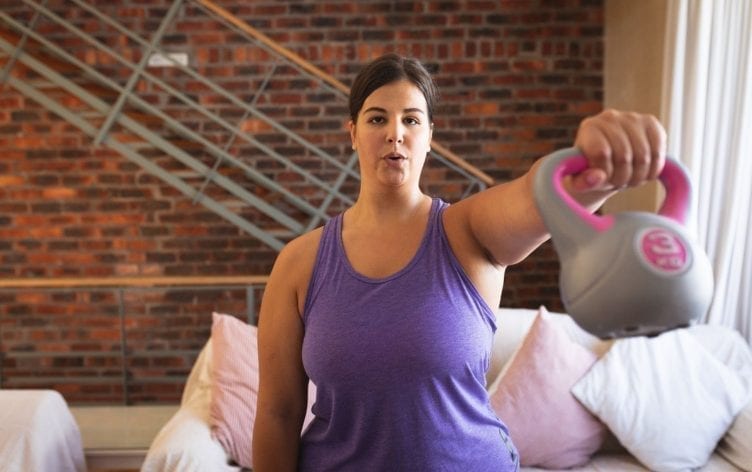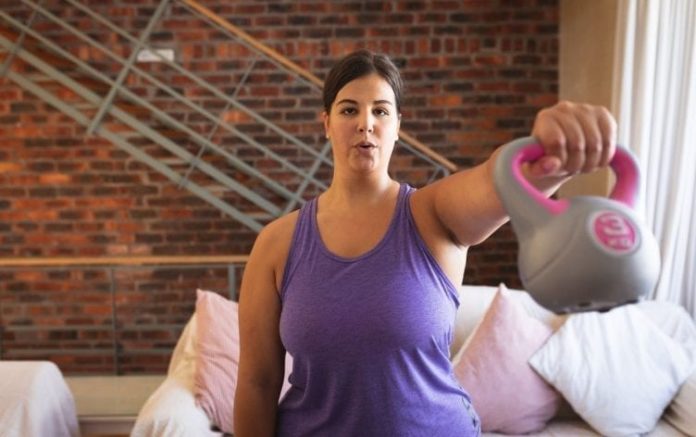
When you’re trying to lose weight and keep it off for good, experts agree: The slow-and-steady route is your best bet. “It’s normal to feel less-than-patient with your weight-loss journey, but remember that consistency is key,” says Dr. Elizabeth Lowden, medical director of the Northwestern Medicine Metabolic Health and Surgical Weight Loss Center at Delnor Hospital. “A pound a week over a year is still 52 pounds. Losing weight slowly, but maintaining that weight loss is better than losing and regaining it due to eating and exercise habits you can’t maintain.”
If you’re committed to losing weight, you know you need to adjust your eating plan to include more whole foods, increase your daily movement, find healthy ways to deal with stress, and get enough sleep. With all of these changes on your plate, “a steadfast commitment and patient mindset are essential for you to stick with it for the long haul,” says Liz Wyosnick, a Seattle-based registered dietitian.
In this spirit, here are 10 ways to become more patient and learn to enjoy your weight-loss journey:
1
ESTABLISH YEARLY GOALS
“One of the reasons that weight loss can feel so slow is because we see ourselves every day, every hour and every second,” says Katie Rickel, PhD, a clinical psychologist and CEO of Structure House, a residential weight-management facility in Durham, North Carolina. Regardless of how much weight you have to lose, give yourself a year, she suggests. Framing your journey over an extended period can make it easier to be realistic about the behavior changes you need to make to reach your goal, she says. Progress isn’t always linear, so it helps to have a longer time frame that embraces consistency over perfection.
2
… AND SET REALISTIC SHORT-TERM GOALS
Make sure you’re starting with healthy weight-loss expectations that are fair to you and your body (Think: 1/2–2 pounds per week or about 2–8 pounds per month), says Lowden. Setting your goal weight in an app like MyFitnessPal and logging your food helps keep you motivated as you watch your weight trend downward long term, even if day-to-day ups and downs pop up on the scale. Breaking your yearly goals into monthly ones could help you reach them faster.
3
THINK SMALL
“Instead of focusing on how far you have to go in your weight loss, focus on what you can do today, and then what you can do tomorrow and so on,” says Wyosnick. Because the way you eat to lose weight should be sustainable, aim to make simple, consistent tweaks rather than eliminating or avoiding certain foods entirely. For example, try halving the cream you add to your coffee, swapping sparkling water for soda or following the 80/20 rule.
4
FOCUS ON A LOWER WEIGHT LIFESTYLE
Many people find themselves saying they’ll start losing weight again after the holidays, post-vacation or once work stress blows over. If this sounds like you, it likely “means you’re continually losing the same weight instead of figuring out a way to live to weigh less,” says Wyosnick. It’s a small change in perspective, but when you commit to a lifestyle that supports a lower weight (see number 3), you can finally stop cycling in and out of discomfort and dieting.
5
REWARD YOURSELF ALONG THE WAY
To feel empowered during your weight-loss journey, it helps to acknowledge your success along the way, says Wyosnick. First, set SMART goals, which are sustainable, measurable, achievable, realistic and timely.
For example, aim to add a handful of non-starchy vegetables like leafy greens to each dinner or go on a daily walk at lunch for a week, and track your progress. Then, if you stick with it, give yourself a non-food reward like an at-home spa night, new kitchen gadget or workout gear. Then, build on your progress with another goal.
6
MAKE HEALTHY EATING FUN
“It’s cliche but true — you have to enjoy the process,” says Wyosnick. To commit to balanced nutrition long term, list your favorite fruits and veggies, whole-grain products, lean proteins and healthy fats to include in your groceries. Learn how to prepare well-portioned meals with a meal kit or cooking classes and come up with some go-to orders for when you need to grab a quick bite with healthier fast-casual and fast-food options.
7
PARTAKE IN EXERCISE YOU ENJOY
Daily exercise, which can help you maintain weight loss long-term, should similarly be something you look forward to so you can stick with it. Ask yourself what movement and exercise routines you want to schedule in your calendar and whether you can still see yourself doing them months (and years) from now.
To figure out the best exercise plan for you, think about what days and times make sense for you. Also, consider the location (like a home gym, fitness class, walking group at the park, or hike for a scenic view) and ways to stay motivated (such as meeting up with a personal trainer, recruiting a family member or training with friends and loved ones virtually).
8
GET CREATIVE
If you’re stuck in a weight-loss plateau (a normal part of the process as your metabolism adjusts to new energy levels), “take the opportunity to figure out what might be stalling your progress and what changes could help better support your efforts,” says Wyosnick.
Track your meals and movement, experiment with new healthy recipes and try upping the intensity or frequency of your workouts. Consider switching things up with a group fitness class, adding more strength-training or exercising outside.
9
THINK BEYOND THE SCALE
If you’re feeling impatient with the number on the scale, make it a point to list non-scale victories you can celebrate regularly. For example, “consider the way your clothes fit differently, the ease with which you can hurry up the stairs or how much energy you have,” suggests Lowden.
You can also find other ways to measure your weight loss that motivates you beyond the scale, like regular progress photos or measurements of your waist and hips, which are especially helpful when you’re exercising more and building muscle.
10
REFRAME FRUSTRATIONS
Travel, social gatherings and unforeseen setbacks can lead to lapses in weight loss. In these situations, “remember that your body is resilient, all of your work is not lost, and you will get back to the healthy habits that suit you as soon as you can,” says Wyosnick.
For example, rather than letting one dinner out with friends (and more calories than you expected) lead to a wave of guilt and bad decisions, enjoy yourself. Then, commit to making a healthy breakfast in the morning.
Originally published December 2019, updated with additional reporting
Unlock an experience that’s like having a dietitian, trainer and coach — right at your fingertips. Go Premium for expert guidance and exclusive tools that will help you reach your personal health goals.










